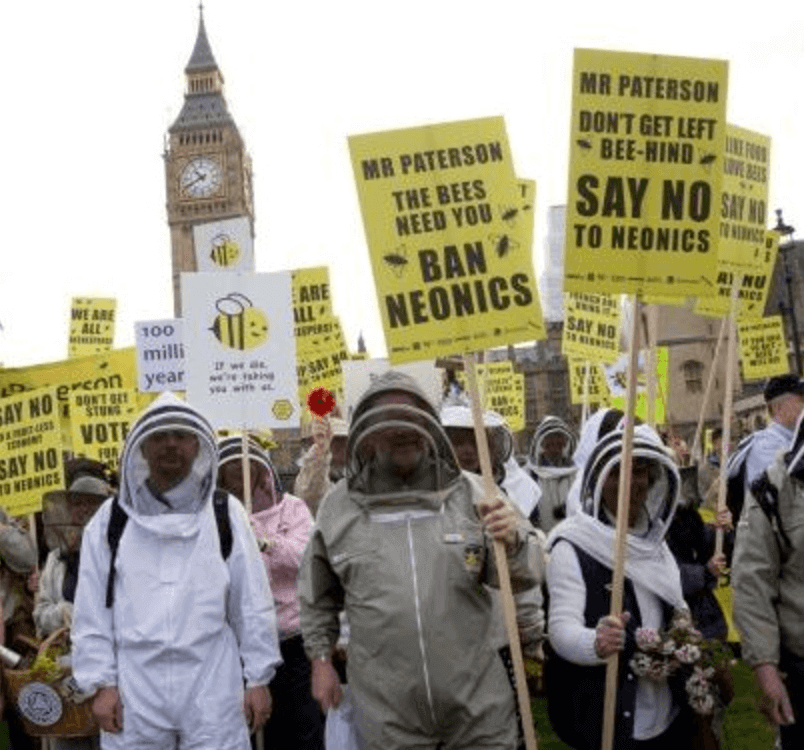Nostalgia is fine for their backyard gardens but not agriculture. In the real world of food production, neonics are better for the environment than legacy products that were sprayed everywhere. Instead of being mass spraying, which can lead to runoff and persistence, neonicotinoids are derived from natural mechanisms. They are seed treatments, for when plants are most vulnerable to pests.
In 2018, the EU had placed a ban on neonicotinoids over the objections of scientists, claiming harmful effects on bees, and England played along. There was no evidence for such deaths, honeybees were not in decline, so professional activists had instead claimed wild bees were being harmed. It was a nice, non-specific symptom because it can't be validated or refuted. There are over 25,000 species of bees, so many we can't create an accurate number because only a tiny fraction even have hives. Claiming they are dying is as easy as claiming the position of the stars in the sky the month you were born created your personality; only gullible people and those selling to them believe it.

Trust science or people whose funding groups buy brand new outfits to wear to protests? Little wonder people don't trust masks or even vaccines when this kind of thinking is the norm for half of the population.
Meanwhile, the UK had decided to save itself $10 billion each year by disentangling from the EU, which means they no longer had to keep themselves opposed to the science the EU disregards. That is a welcome switch from the country that pioneered "Frankenfood" hysteria about the GMO process and rejuvenated anti-vaccine sentiment with the modern myth that they caused autism. Yet they were not alone. Belgium, Denmark, Spain and France and half a dozen others had already disregarded the EU's centralized wishful thinking. The UK is ignoring people who ignore science, and that is a good thing.
The Guardian, a reliable progressive outlet which has a suspicious financial relationship with organic industry trade groups (donations get made, op-eds by professional deniers for hire like US Right To Know suddenly appear), predictably opposes science yet again, but the virus yellows disease is wrecking crops without good pesticides like thiamethoxam. Guardian ignores the 80 percent losses and claims that refined sugar is bad anyway - they argue that English farmers should go bankrupt because some shady epidemiologist did a food frequency questionnaire and created a correlation. It's all nonsense, and fortunately Europeans governments are siding with science instead.


Comments